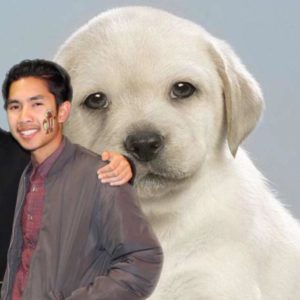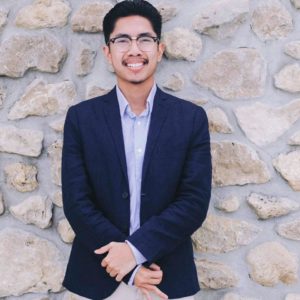To celebrate Asian Pacific American Heritage Month, Sparks Magazine is featuring Asian Pacific Islander American (APIA) student leaders across different campuses. Look out for more features from your campus throughout May.
Byron Solis is a senior from Florida State University majoring in political science and international affairs.
What does it mean to be APIA/your ethnicity?
To be a Filipino American/APIA to me means to be someone who embraces the duality of the two cultures that have been exposed to us. There are different aspects of being a Filipino/APIA living in America than being a Filipino/APIA living in their own respective countries. We have our own unique culture, rich history and issues that we face. We are also able to share with others what it means to be a Filipino American/APIA, regardless of whether they are a part of the community or not. Through art, representation and conversation, I am able to share my experiences as a Filipino American/APIA individual.
I realized then and there that as an Asian American, the boundaries that I created prevented me from prospering.
Was there a specific moment when you claimed your APIA identity?
The specific moment that I claimed my identity as an APIA individual was when I realized that my race/ethnicity did not bound me to a specific field. Growing up, I believed that as an APIA, the career I end up in will only be within STEM field. This stigma led me to start my freshman year in a STEM-focused major. A year came and passed, and I realized that I was miserable where I was. It took a conversation with an individual who I will mention later on that removed that preconceived notion from me. I realized then and there that as an Asian American, the boundaries that I created prevented me from prospering. Due to this conversation, the identity that I detested, because I saw it as a setback, altered and became an identity that I embraced because I saw it as my motivator. It motivated me to show myself, show others and show the society that raised me, that APIAs are more than capable to be in fields that are not in the “norm” for APIAs. And the first step for me to do that was to claim my APIA identity.
What are some of the challenges in being a student leader on campus?
One challenge I faced as a student leader on campus is I would spread myself to thin and take on every opportunity that my university provided for me. Within my collegiate career, there have been many times where I wanted to do everything, and although, I don’t do everything, I try to do as much as I can. This leaves me with too much on my plate, and because of this, some of my roles on campus receive more attention than others.

What’s your comfort food?
My comfort food is Spam.
Is there a taste, smell or something you see that immediately reminds you of home or gives you a sense of comfort?
Just like I said, Spam is my comfort food. The taste of Spam, especially crispy thin Spam brings me immense comfort and reminds me of the breakfast my dad would come eat or make before he went to work. One thing I know about the Filipino American community I grew up in, is that everyone eats Spam. But almost every interaction I have about Spam with people outside of my Filipino American community had two responses: They either did not know what Spam was or saw it as mystery meat thinking it was gross. Because of this, I was embarrassed about my comfort food. I would deflect when people asked my opinions on Spam, and for a long time I did not want to associate with Spam. But, once I embraced my identity as an APIA,I realized that I shouldn’t be embarrassed about Spam. It is a part of the community that I grew up in, and hell, I think it tastes delicious, so I embraced my love for Spam. Spam is great y’all, Spam is really flippin’ great.
What/who inspired you to be involved in the APIA community?

The person who inspired me to be truly active within the APIA community is Anthony Maglaqui. It was Anthony who talked to me that night when I was ranting about how much I hated the major that I was in. He talked to me about how passionate I seemed about politics and how maybe it could be an option for me. This inspired me because he himself was a political science major, which was what I always wanted to be a part of, but I was hesitant since I did not see many people who looked like me doing what I wanted to do. Seeing Anthony, a fellow Filipino American, pursuing a degree in politics, is what energized me to, one, change my major, and two, become an advocate for the APIA community. Recognizing the importance of representation in the fields where APIA representation is not really seen, I wanted to be what Anthony was to me or another APIA individual. I wanted to be someone who inspires another APIA individual to follow what they’re truly passionate about, regardless of the preconceived path they thought they had to be a part of because of their ethnicity.
…